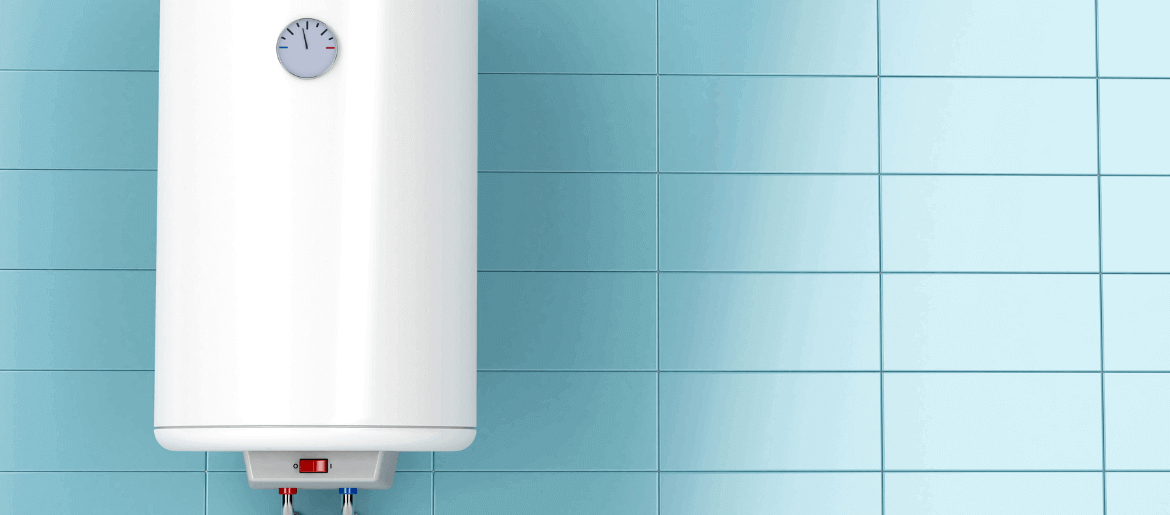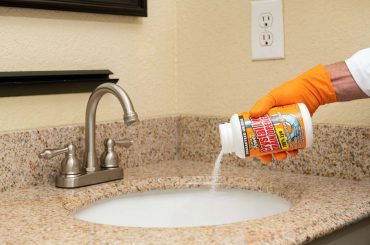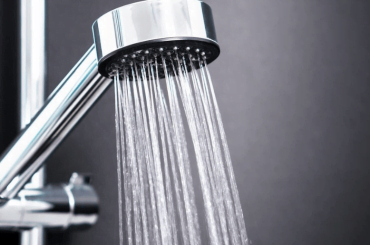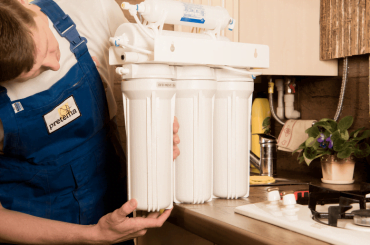Do you know the difference between a boiler and a water heater? While they may seem similar these two appliances have different purposes.
A water heater heats and stores water while a boiler creates heat. Boilers are typically used to heat larger spaces and for heating water for home use.
If you’re unsure of which appliance is right for your home, read on to learn more about the differences between boilers and water heaters.
In this blog, we’ll explain the differences between these two appliances, and the advantages and disadvantages of each.
Boilers vs Water Heaters: What’s the Difference?
Boilers and water heaters are both appliances designed to provide hot water but they operate differently and serve different purposes. Some of the differences include:
Boiler: A boiler is a large-scale appliance that heats water to produce steam, which can then be used for heating or other purposes. Boilers are typically used in residential and commercial settings for space heating and hot water needs.
Water Heater: A water heater is a smaller appliance that is designed to provide hot water on demand. Water heaters are typically used in residential settings for providing hot water to sinks, showers, and other appliances like dishwashers and washing machines.
In terms of efficiency, boilers tend to be more efficient because they don’t need to constantly generate hot water whereas water heaters are only able to provide hot water when it is needed. Boilers also can heat a larger area than water heaters which makes them better suited for larger buildings and areas.
In terms of cost, water heaters tend to be more affordable than boilers. However, if you need hot water in large amounts or over a long period then investing in a boiler may be more cost-effective in the long run.
How do boilers work and are they more efficient than water heaters?
Boilers are heating systems that use hot water or steam to heat a home. They are typically fueled by gas or oil but some models can be powered by electricity. Boilers work by circulating heated water through radiators or radiant floor systems in the home.
This system of hot water circulation is more efficient than conventional water heaters because it uses the same water multiple times and there is less energy loss. Boilers also have a much higher capacity than traditional electric water heaters meaning they can provide more hot water to meet the demands of larger households.
Additionally, boilers are quieter than conventional water heaters because there is no tank and therefore no loud noises from the expansion and contraction of metal. Boilers are also more energy-efficient than water heaters because they use less electricity to operate.
Finally, boiler systems can provide evenly distributed heat throughout a home and can be used with thermostats or other control systems for greater heating efficiency.
Benefits of having a boiler in home and how much does it cost to install one?
Having a boiler in your home can be extremely beneficial. Boilers provide a consistent and reliable source of heat, making them an efficient way to regulate the temperature throughout your home.
Additionally, boilers can be installed with systems that are compatible with solar energy, reducing your energy costs over time.
The cost of installing a boiler will depend on several factors, such as the size and type of boiler you choose, any additional features or controls that are needed, and the complexity of the installation.
Generally speaking, a standard gas boiler installation typically costs between $3,000 and $5,000.
If you decide to opt for a more specialized system or require special parts or materials, the cost could go up. It is important to research various boiler systems and speak with a qualified professional to make sure you get the best system for your needs and budget.
Drawbacks to using a boiler instead of a water heater
The main drawback of using a boiler instead of a water heater is the cost to install and operate it. Boilers are typically more expensive upfront than water heaters, though they can be more cost-effective in the long run if you opt for a solar-compatible system.
Additionally, boilers may not be suitable for certain types of homes or climates, as they are best suited for central heating systems. It is important to evaluate your particular situation and consult a professional before deciding to install a boiler.
Investing in a boiler can be an efficient and cost-effective way to heat your home. However, it is important to do your research and speak with a qualified professional to ensure you make the best choice for your home.
Also Read: Can Bad Water Heater Cause Low Water Pressure?
FAQs – Boilers vs Water Heaters
What makes a water heater a boiler?
A water heater is typically a storage tank that holds hot water and can be used to provide hot water for various purposes. A boiler, on the other hand, is specifically designed to heat water up to temperatures high enough to create steam or hot water vapor.
Boilers are generally larger than water heaters and contain additional components such as pumps, valves, and controls that all work together to create hot water or steam. Boilers can be used for a variety of applications such as space heating, domestic hot water, industrial processing, and power generation.
For a water heater to qualify as a boiler, it must meet specific requirements set by regulatory authorities such as ASME (American Society of Mechanical Engineers). These requirements include factors such as pressure, temperature, and safety standards. A boiler must also be installed by a qualified technician who is aware of local regulations and codes.
Are water heaters connected to boilers?
Yes, water heaters can be connected to boilers. Boilers and water heaters can be linked together to provide hot water for various purposes throughout the home. The boiler will supply heated water to the water heater, which then stores it until it is needed.
This setup is particularly useful for larger households that require a large amount of hot water at any given time. In addition to providing hot water, this combination system can also be used for space heating and industrial applications.
Can you have hot water without a boiler?
Yes, you can have hot water without a boiler. Electric tankless water heaters are an efficient way to provide hot water on demand without the need for a boiler. Tankless water heaters use electricity to heat coils which then transfer the heat to the water passing through them.
This type of system is ideal for households that only require a small amount of hot water, as they are more energy efficient than traditional storage tank systems.
How long do boilers last?
The average lifespan of a boiler is approximately 15-20 years, depending on the type and quality of the system. Regular maintenance and inspections are necessary to ensure that your boiler is running efficiently and safely for as long as possible.
Final Words
So, there you have it. The main difference between boilers and water heaters is that boilers provide hot water for heating systems, while water heaters provide hot water for bathing and other household uses. Now that you know the basics, it should be easier for you to decide which type of system is best for your needs.
If you’re still not sure which type of water heating system is right for your home, you must consult with a professional and assess your particular needs and situation.





